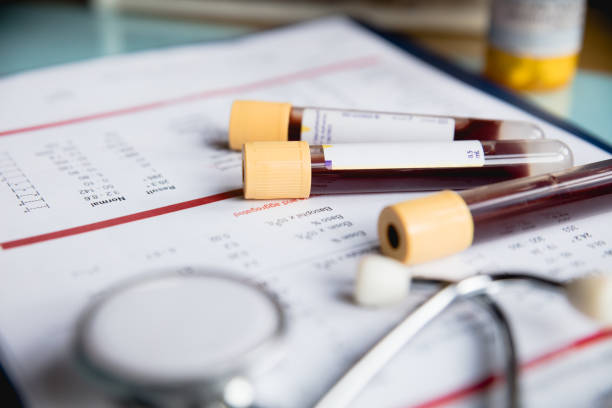Vitamin D is required for your body to consume calcium and stimulate bone formation. Rickets is caused by the shortage of it in youngsters, whereas a deficiency in adults results in fragile, deformed bones. Vitamin D is also required for a variety of other important bodily processes.
Breast cancer, colon cancer, depression, heart disease, prostate cancer, weight gain, and other diseases have all been related to vitamin D deficiency. According to several studies, persons with greater levels had a decreased risk of sickness. Still, they don’t establish that the deficiency causes disease or that taking supplements reduces risk.
What Is a Vitamin D Level Test?

Vitamin D is an essential component for strong bones and teeth. Vitamins D2 and D3 are the two types vital for nutrition. Fortified foods, such as morning cereals, milk, and other dairy products, are significant to include in your diet. When your skin is exposed to sunshine, your body produces D3. It may also be present in eggs and fatty seafood like mackerel, salmon, and tuna.
D2 and D3 are converted in your circulation to a form of vitamin D called 25 hydroxyvitamin D or 25(OH)D. A level test measures the amount of 25(OH)D in your blood. The levels of this vitamin that are abnormal may suggest bone abnormalities, nutrition issues, organ damage, and other medical issues.
What Is the Purpose of the Vitamin D Level Test?
A vitamin D level test is used to detect or track bone problems. It’s also used to monitor vitamin D levels in chronic conditions, including asthma, autoimmune disorders and psoriasis.
Why Do You Need to Check Your D Vitamin Levels?

If you experience indications of deficiency, your physician will have to order a D vitamin test for you. Among the signs and symptoms are:
- Fractures
- Malformation of the bones (in children)
- Softness of the bones
- Weakness of the bone
If you’re at a high risk for D vitamin deficiency, the assessment might be suggested. The following are several of the risk factors:
- Bone weakness and other bone problems
- People who have had a gastric bypass surgery before
- Elderly people
- Overweight people
- Those who lack exposure to the sunlight
- Those who have a darker skin tone
- Those who have difficulty absorbing fat in the diet
What Happens When You Get a Vitamin D Test?

A vitamin D test is a test in the blood which determines the quantity of D vitamin in your body. A medical expert will collect the samples of blood from your arm’s vein with the use of a syringe. A little quantity of your blood will be compiled into a testing tube once the needle is placed. Once the needle in the syringe is inserted and has been removed, you might suffer a slight sting. It typically needs just less than five minutes to do the task.
Is There a Possible Risk in Taking the Vitamin D Level Test?
Taking a test in the blood carries relatively a small chance of risk. You might have a little discomfort or even bruising where the needle was inserted, but most of the symptoms fade rapidly.
What Do the Findings Imply?

If you have the insufficiency, it might suggest one or more of the following:
- Exposure to the sunlight is insufficient
- You’re not receiving sufficient vitamin D in your meal
- You have difficulties absorbing it from your food
A low result might as well suggest that your body isn’t properly absorbing the vitamin, that could signal liver and kidney illness.
Dietary and supplement adjustments are frequently used in addressing vit D insufficiency.
If you have excessive vit D, it’s presumably because you’ve been getting too many vitamins and other supplements. You’ll have to quit taking these kinds of medications to have lower vitamin D levels. A deficiency may harm your blood vessels and organs. It would help if you spoke with your medical practitioner to find out what your findings signify.
What Additional Information Should You Know Regarding a D Vitamin Test?

It’s essential to inform your doctor regarding any medications, supplementations, and vitamins you’re intaking since it might alter your test findings.
Vit D is vital for your health since it helps with immune and bone function. Many individuals deficient in vit D don’t show any symptoms or signs. As a result, checking your vitamin D levels may benefit your health.

